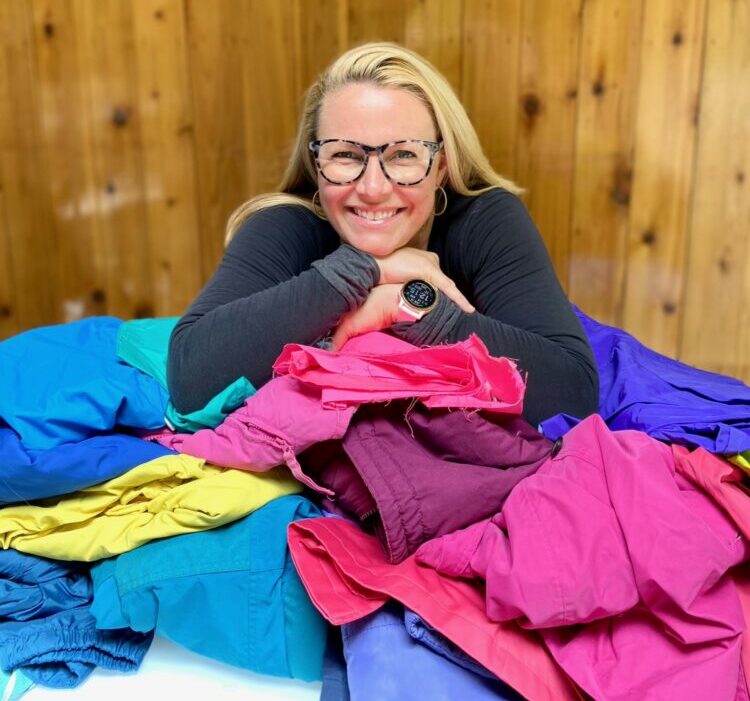
Who would think that something as simple as a T-shirt could be so devastating for the environment? In recent years, studies have continued to demonstrate the alarming effects that the cheap production of clothing has on the environment – with Princeton University noting that the fast fashion industry is responsible for more carbon emissions each year than all international flights and maritime shipping across the globe combined.
But there are leaders in the fashion industry who are producing eco-friendly clothing – where materials are responsibly sourced and production aims to minimize excessive water usage and pollution. Brands like Everlane and Eileen Fisher have woven recycling programs and environmentally friendly manufacturing into their company structures.
And smaller companies are doing their part, too. Through our 1,000 Stories Project, we’ve spoken with a number of independent female founders who are running their own eco-friendly fashion and apparel brands. This Earth Day, we’re highlighting some of these notable women and the work they are doing.
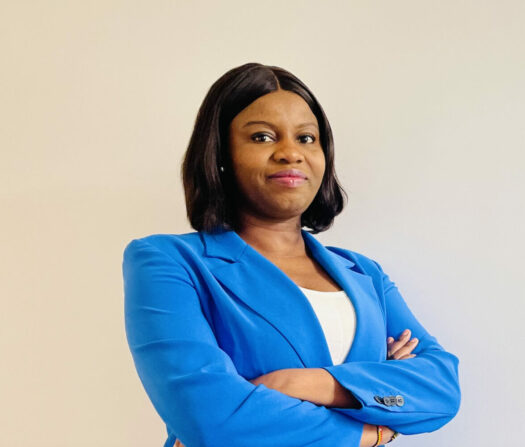
Cynthia Asije of Adire Lounge
Cynthia Asije has achieved something special in the sustainable fashion industry. Using agricultural waste – including banana stems – she developed a new material source for making textiles. The French-African CEO is founder of Adire Lounge, a company which sells those textiles as well as clothing, has won numerous awards for her innovations, and been recognized as a leading figure in the field. In 2017, she was hailed as the “Best Indigenous Textile Designer” by the ACE Awards, a program that celebrates creative African entrepreneurs. Asije’s company was also named one of Africa’s 100 Next Start-Ups by the World Bank. Today, Asije is proud to support the local farmers who supply the plant fibers Adire Lounge uses – and to have recycled over 50 million tons of agricultural scraps, which she says has reduced carbon emissions by over 80 million tons.
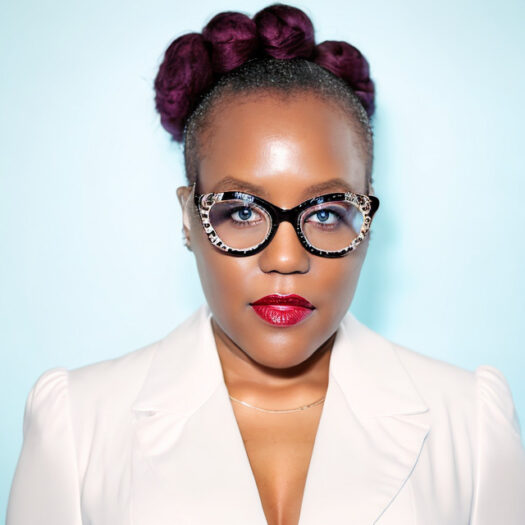
Yvette Rashwan Estime of Dirty Celebrity
When Yvette Rashawn Estime was laid off from her corporate job, she decided to follow a dream she had long shared with her twin sister: Starting a fashion line. She launched Dirty Celebrity in December 2019 – only for Covid to hit a few months later. As the world slowed down, and Estime mulled over her new venture, she began thinking about climate change, and the fashion industry’s contributions to it. Then, she started to rethink Dirty Celebrity as an accessories line that puts the Earth first. Today, the Jersey City, New Jersey, entrepreneur’s company adheres to its zero-waste ethos by using deadstock e-commerce materials that are no longer sellable, and turning them into fun new bags, jewelry, hats and scarves.
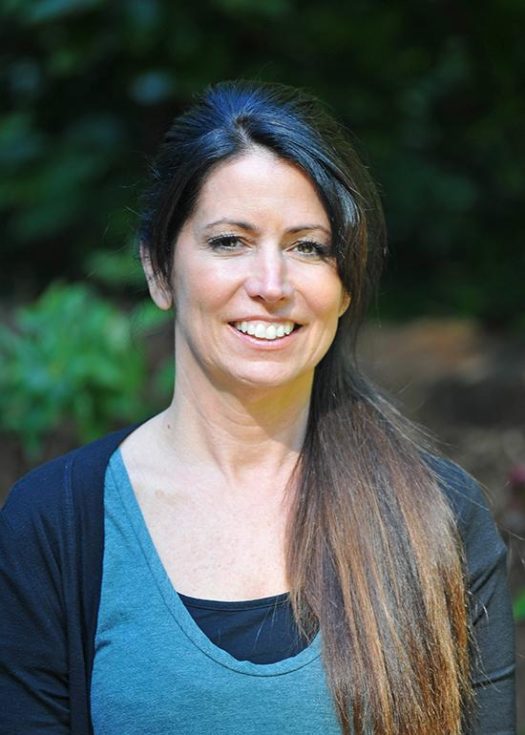
Cindi Busenhart of MERGE4
As a veteran of the sports apparel industry, Cindi Busenhart knew there had to be a solution when her son started blowing through socks on a weekly basis while playing sports. But several fruitless shopping trips revealed a gap in the market for tough, durable and stylish socks. In 2017, Busenhart launched MERGE4, a certified B Corporation, to sell them herself. The company makes eco-friendly socks and donates portions of each sale to organizations such as children’s hospitals and addiction recovery centers. The Soquel, California, founder has also sought out collaborations with artists, athletes and musicians for her socks’ designs, and is proud to be able to empower them by offering royalties on every pair sold.
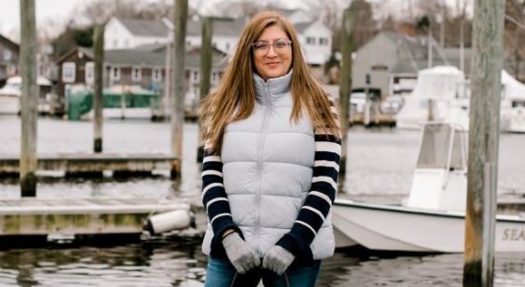
Mary Dimouro of On the Road Again
Mary Dimouro is a life-long resident of New England – in fact, she still resides in her Hudson, Massachusetts, childhood home. While growing up there, she regularly watched her South Korean mother working as a seamstress, often assisting as a hobby. In 2018, Dimouro decided to go pro in her mom’s honor by launching her own fashion startup, On the Road Again. Through it, she offers a line of light-and-bright bags, totes, pouches and placemats made from other companies’ surplus fabrics and recyclable materials – or in some cases, discarded mesh from boats and trucks. To go even greener, the fashion founder also makes a donation to reforestation nonprofit One Tree Planted for every sale made.
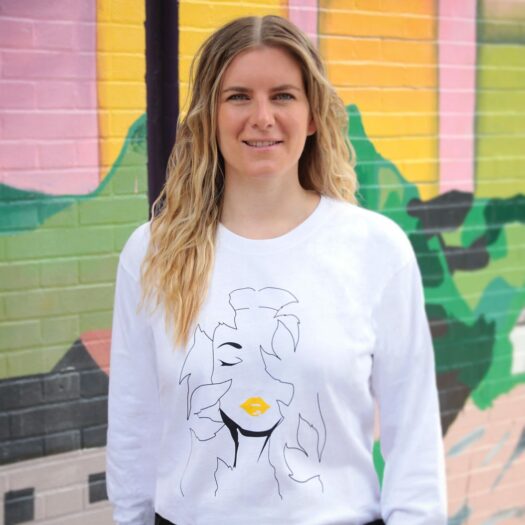
Samantha Tollworthy of Teddy Locks
Samantha Tollworthy already had her dream job as a wildlife TV producer. But everywhere she traveled, she noticed one constant theme: the overwhelming impact of single-use plastic on our planet. Determined to help fight climate change, she quit her job and started her eco-friendly line of socks, Teddy Locks, which she bills as “comfier than cashmere.”. All the socks are ethically made in the USA from recycled plastic bottles and upcycled textile waste. The Troy, North Carolina-based entrepreneur sources the plastic bottles from the east coast, and to date has recycled more than 10,000 bottles and saved more than 1,500 pounds of waste from going into landfills. Today Tollworthy is focused on continuing to grow her revenue while also educating the public about waste management and finding enough balance with work to be able to spend time with her young family.
Kate Harvey of Birdie Blue
Kate Harvey is a mom who “worries about the world we are leaving for our children.” She’s especially concerned by the tons of clothing waste that end up in our landfills every year – about 92 million tons, to be precise. So when a pair of ski pants she owned ripped, Harvey couldn’t bear to simply throw them away. Instead, she brainstormed ways to repurpose them – and wound up creating a durable fanny pack that would become the basis for her accessory brand, BirdieBlue. After two years of refining and testing that first product, BirdieBlue launched in September 2022. Since then, the Stowe, Vermont-based mompreneur has added wallets, toiletry bags and sling bags to her offerings – all of them sold in her signature retro-inspired patterns.

